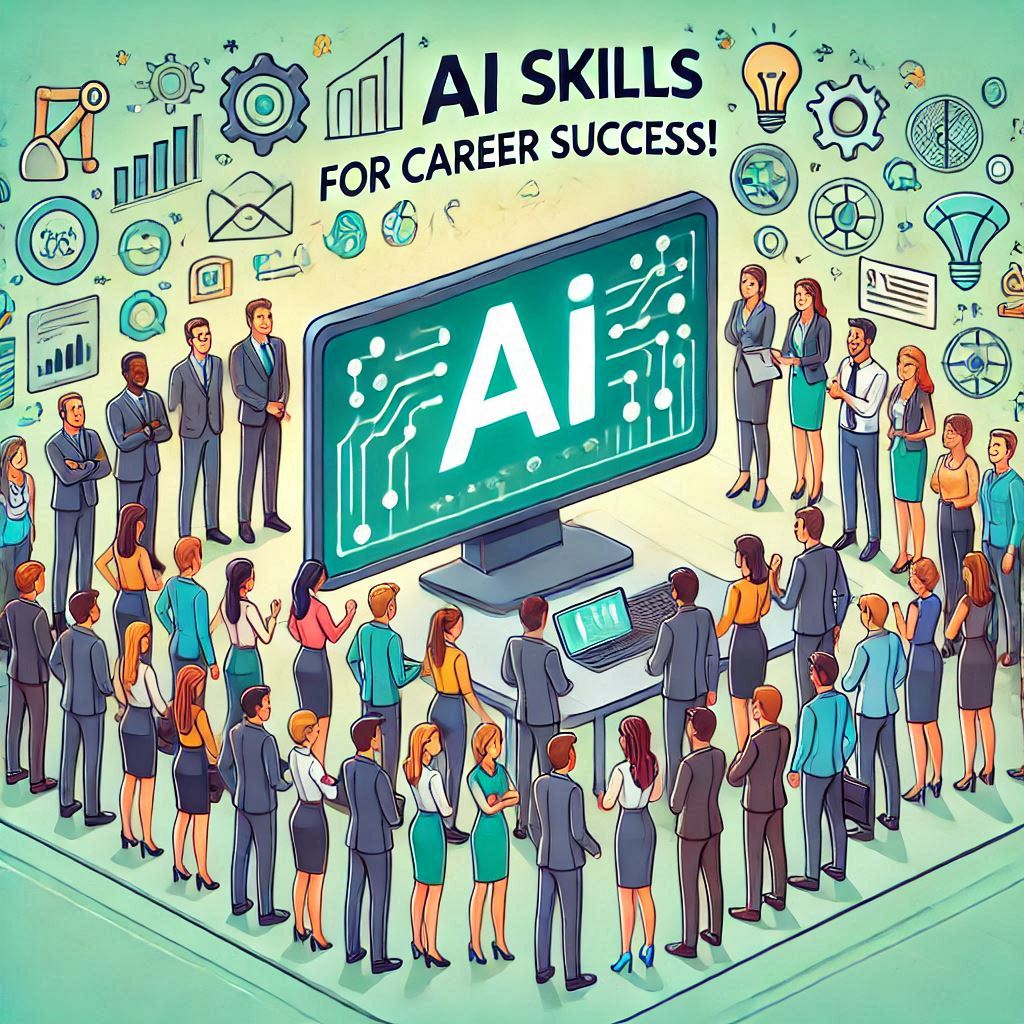Last Updated on February 27, 2025 by Editor
As the world quickly moves towards artificial intelligence (AI), a big question pops up: Are you ready to shine in the AI-driven future of work? Your answer could shape your career path in the next few years.
AI is significantly transforming the job market. With AI skills in growing demand across industries, now is the time to take action.
To stay on top, professionals in every field must jump into the AI skills movement. This will help them succeed in the years ahead.
Key Takeaways
- Transforming industries and job markets, AI is making AI skills essential for career growth.
- Driving demand for roles like data scientists, machine learning engineers, and AI engineers.
- Boosting AI skills is necessary to keep up with the fast-changing AI landscape.
- Requiring employee training in AI, the EU AI Act highlights the urgency of acquiring these skills.
- Offering long-term job security, the AI movement opens doors to new career opportunities.
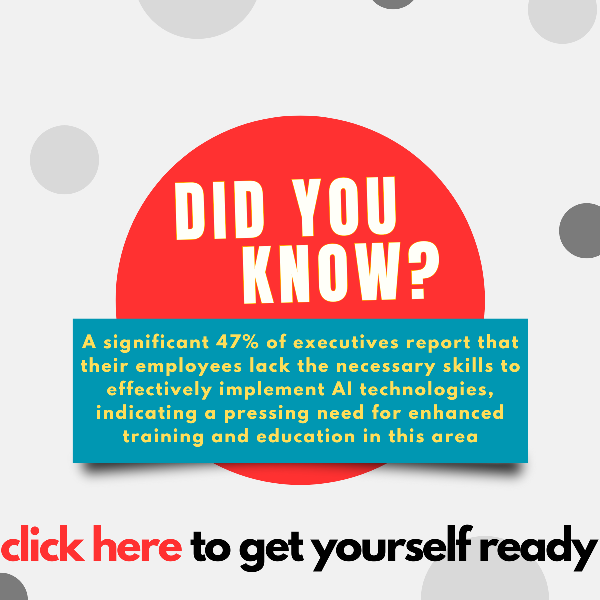
The Current State of AI in the Professional Landscape
Artificial Intelligence (AI) is now a big part of our lives. It’s used in many fields, like education, healthcare, and finance. By 2025, AI will change how we work and live.
Industry-Wide AI Integration
AI is being used more and more in different industries. A recent survey by McKinsey reveals that 65% of companies regularly use AI. This is a big jump from the last survey just ten months ago. Businesses are using AI to make things better, make decisions easier, and come up with new ideas.
Growing Demand for AI-Skilled Professionals
There’s a big need for people who know a lot about AI. This includes data science, machine learning, and AI engineering. Employers are seeking professionals capable of managing complex tasks in today’s AI-driven world.
Impact on Traditional Job Roles
AI is changing old job roles. People need to learn new skills to keep up in the job market. As AI becomes more common, workers must be ready to adapt and grow in an AI-based economy.
Today, AI is being used everywhere, and there’s a big need for AI experts. As companies use AI to improve and innovate, the demand for skilled people will keep growing.
| AI Integration Metrics | Latest Data | Previous Data |
| Organizations regularly using generative AI | 65% | 33% |
| Companies utilizing AI across multiple business functions | 50% | 33% |
| Expected increase in AI investment in the next 3 years | 67% | N/A |
| Organizations experiencing negative consequences from AI | 44% | N/A |
| Organizations with an enterprise-wide AI governance council | 18% | N/A |
“AI is no longer the technology of the future; it’s deeply embedded in education, healthcare, finance, and more. By 2025, AI will revolutionize the way we work and live.”
The world of AI is changing fast. There’s a big need for people with AI skills. This shows how important it is to learn about AI for a future job.
Understanding the AI Skills Revolution
The AI skills revolution is more than just coding. It’s about having a wide range of skills. These include problem-solving, understanding cognitive computing, and knowing how AI works in different fields. This change is because AI is becoming more common in cloud-based solutions. These solutions offer scalable, adaptive, and data-driven insights.
As AI skills become more important, it’s key to keep up. People need to see themselves as valuable in this fast-changing world. Knowing about the AI skills revolution means seeing how AI changes jobs, the need for constant learning, and new career chances with AI skills.
To succeed in this AI revolution, you need to do more than just learn tech skills. You also need to think critically, solve problems, and be creative. By diving into this AI revolution, you can boost your problem-solving, get better at cognitive computing, and find new career paths in AI and more.
“The balance between technological innovation and human-centered development is critical for the success of AI in transforming the L&D landscape.”
The AI skills revolution is changing the work world. It’s important for people to stay ahead and learn new skills. By taking artificial intelligence courses and keeping learning, you can open up many opportunities. This way, you become a key player in the AI-driven future.
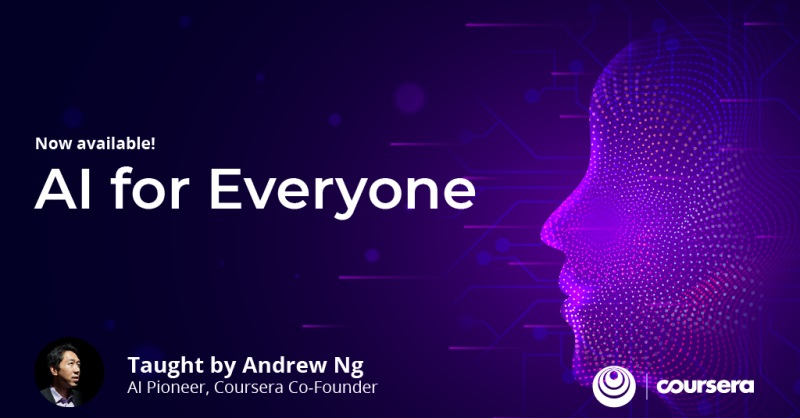
The Importance of Learning or Developing AI Skills in 2025 for All Professionals
The digital world is changing fast, and the need for AI skills is growing. By 2025, knowing how to use AI will be key for career growth in many fields. Employers want people who can create and use AI to solve problems, showing a big need for Machine Learning skills.
Career Advancement Opportunities
Learning AI skills like NLP, data analysis, and AI ethics can open many doors. NLP is in demand for analyzing customer feedback and automating support. Skills in data analysis and visualization are also valuable, as companies rely more on data. Knowing about AI ethics is also important, as rules around data and AI use get stricter.
In-demand AI skills will also include data literacy and prompt engineering. These skills will help you solve problems better and adapt to new tech.
Salary Potential and Job Security
AI experts can earn more and have better job security. Entry-level AI engineers make $80,000 to $120,000 a year, while experienced ones can earn over $150,000. According to AICERTs, AI jobs are expanding rapidly, with an annual growth rate of 74% and AI will create 500,000 new jobs by 2025.
Cross-Industry Applications
AI is changing many industries, including finance, healthcare, marketing, and logistics. In marketing, AI helps personalize customer experiences. In finance, it’s used for fraud detection and automated trading. In healthcare, AI improves patient care and diagnostics. AI skills are valuable across many fields, making professionals in demand.
In the next few years, AI will be used more in jobs. It’s important for everyone to learn about AI and its uses. By improving your AI skills, you’ll be ready for the changing job market of 2025 and beyond.
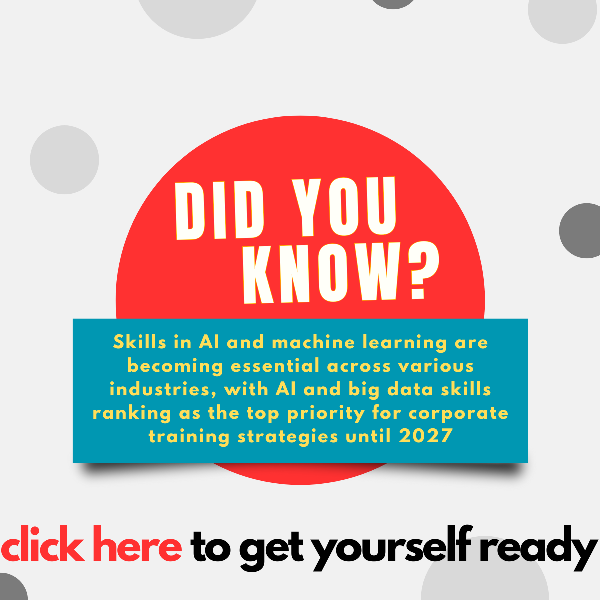
Essential Technical Skills for AI Proficiency
The field of artificial intelligence (AI) is growing fast. More people are needed with special technical skills. Employers want those who know programming languages like Python, R, and Java. They also look for knowledge of AI frameworks like TensorFlow, PyTorch, and Scikit-learn.
Data analysis and statistical skills are key for AI work. Knowing tools for data visualization, like Tableau, Power BI, and Matplotlib, is important. Being able to understand AI insights and make decisions based on data is highly valued.
Cloud computing is now a big part of AI. Skills in managing cloud platforms like Amazon Web Services, Google Cloud, and Microsoft Azure are in demand. Those who can use these services to build and deploy AI models are set for success.
Low-code and no-code platforms have made AI more accessible. Even those with little coding experience can get into AI development. Knowing tools like Bubble, Appian, and OutSystems helps build applications and automate tasks efficiently. Skills in user interface design and data integration are also crucial for making AI applications user-friendly.
Developing these technical skills makes professionals valuable in the AI world. The AI market is expected to hit $360 billion by 2028, growing fast. This means more jobs for AI-skilled people in many industries.
Machine Learning and Deep Learning Fundamentals
Mastering machine learning (ML) and deep learning (DL) is key for a career in AI. These technologies are changing industries and creating a need for AI experts. Learning about different types of learning can help you use AI for predictions, recommendations, and image recognition.
Neural Networks and Algorithms
Understanding neural networks, CNNs, and RNNs is crucial for AI challenges. These algorithms are making big changes in computer vision, natural language processing, and more. They open up new ways for businesses to innovate.
Practical Applications in Business
Using ML and DL in business can make a big difference. It can improve supply chains, predict customer behavior, and automate tasks. Learning these skills can make you very valuable to your company and help drive change.
| AI Job Roles | Average Annual Salary (US) |
| Machine Learning Engineer | $109,143 – $131,000 |
| AI Engineer | $160,757 |
| Data Scientist | $65,674 – $105,000 |
| Computer Vision Engineer | $168,803 |
| Natural Language Processing Engineer | $86,193 |
| Deep Learning Engineer | $141,435 |
| AI Research Scientist | $115,443 |
| Business Development Manager in AI | $196,491 |
| AI Product Manager | $128,091 |
| AI Consultant | $124,843 |
Whether you’re new to AI or looking to improve your skills, knowing ML and DL is key. It will help you succeed in the fast-changing world of AI.
Natural Language Processing and Its Applications
The world is getting more digital, making it key for professionals to understand human language. Natural Language Processing (NLP) lets computers get, analyze, and make human language. This tech is changing how we talk to machines and is vital for many uses.
In 2024, NLP leads the AI wave, pushing forward in virtual assistants, chatbots, and translation. Finance, healthcare, and law use NLP to handle big data well. It helps with chatbots, understanding customer feelings, and market insights from news and social media.
Learning NLP can lead to new career paths. In the last five years, over 150,000 NLP jobs have popped up worldwide. Knowing NLP tools like NLTK, SpaCy, and Hugging Face lets you find insights in data, automate tasks, and boost your team’s work.
As AI changes everything, NLP experts will be sought after. By keeping up with NLP, you can move up in your career, earn more, and work on AI projects that change industries.
Data Analysis and Visualization Expertise
In today’s world, mastering data analysis and visualization is key. These skills help professionals find important insights in complex data. They also make it easy to share these insights with others, whether they understand tech or not. Knowing how to use tools like Python, R, Tableau, or Power BI is very important. These tools help turn raw data into useful information.
Statistical Analysis Tools
AI has changed how we work with data, making it faster and easier. Now, even those who don’t code can use AI. Getting certifications or taking courses like “AI For Everyone” can boost your skills in these areas.
Data Visualization Platforms
Real-time analytics tools are now crucial for many tasks. They help with fraud detection, setting prices, and making user experiences better. Getting certified or taking courses on Data Visualization can help you learn these new technologies.
Interpreting AI-Generated Insights
Data engineering and data mesh architectures are becoming more common. Professionals need to know how to create data products and manage data across different areas. Getting certified or taking courses on Data Engineering can help.
Large language models (LLMs) are changing how we work with data. They open up new ways to work with data, from making prompts to using APIs. It’s important to know about the ethics and privacy laws of these new tools. Courses like DeepLearning.AI’s “Generative AI with Large Language Models” can give you a good start.
It’s also important to know about cloud-native data engineering, privacy, and advanced visualization tools. Knowing about quantum computing and specialized areas is also key. By keeping up with these trends, professionals can succeed in the AI world.

“AI-powered data analysis and visualization are essential skills for professionals in the 21st century, enabling them to unlock the full potential of their data and make informed, data-driven decisions.”
Cloud Computing Platforms for AI Development
Artificial intelligence (AI) and machine learning (ML) are changing the world. Cloud computing platforms like AWS, Google Cloud, and Microsoft Azure are key for developing AI. They provide the power needed to train and run complex AI models. Knowing how to use cloud services with AI is a valuable skill for building scalable AI solutions.
Cloud-based AI development has many benefits. It allows for faster deployment, better scalability, and enhanced security. 94% of businesses saw better security after moving to the cloud, and 44% of small businesses use cloud infrastructure. Experts in cloud technology will be in demand as companies adopt cloud technology.
Knowing how to manage data, analytics, and costs in the cloud is also important. Data management and analytics in the cloud are key as companies move data to cloud platforms, and cloud-based data management and analytics skills are highly sought after. Also, monitoring and managing cloud costs is crucial for getting the most from cloud investments, making cloud cost optimization a valuable skill.
Certification programs from AWS, Google Cloud, and Microsoft Azure can help professionals master cloud-based AI development, data management, and optimization. These certifications show expertise and can lead to great career opportunities in AI and cloud computing.
The global cloud computing market is expected to hit $1,240.9 billion by 2027, growing at a rate of 17.9% annually from 2021 to 2027. As more companies go cloud-first, the need for professionals skilled in cloud-based AI, data management, and optimization will keep growing.
Ethical Considerations in AI Implementation
As best ai courses online free and ai courses scholarships grow, it’s key for experts to grasp AI’s ethics. They must tackle bias, privacy, and security, and ensure AI is developed responsibly.
Bias Recognition and Mitigation
AI can unknowingly spread and grow biases, like in facial recognition for women and darker skin tones. It’s vital to spot and fix these biases. This means making AI models clear and setting strict rules for fairness.
Privacy and Security Concerns
AI adoption across fields raises concerns about data privacy and security. Experts need to craft AI that keeps user data safe and follows laws like GDPR. Solving these problems is key to trust in AI and keeping user info secure.
Responsible AI Development
Creating AI responsibly means thinking about its ethics, like AI art ownership and predictive analytics in education. Experts must be ready to tackle these tough issues. They should suggest solutions that are open, fair, and accountable.
By getting the ethics of AI, experts help make AI tech better and fairer. This way, ai courses funding and best ai courses for product managers will be both skilled and ethical.
Building a Strong AI Learning Foundation
Artificial intelligence (AI) is becoming more important in our world. Getting AI skills is essential for many jobs. Whether you manage a team, lead a business, work with data, or teach, knowing AI basics can lead to new career paths and keep you ahead in the job market.
To start strong in AI, first learn the basics. Understand Narrow AI and Generative AI, and the science behind machine learning and deep learning. Knowing programming languages like Python and math concepts like linear algebra and statistics is also key.
- Check out online learning sites like Coursera, edX, and Udacity for AI and machine learning courses.
- Do hands-on projects, join AI hackathons, and connect with AI communities online to deepen your knowledge and keep up with trends.
- Use AI tools to boost your work, like generative AI, chatbots, and AI tools for managing projects, such as Atlassian Intelligence.
Learning AI can lead to many benefits, like career growth, solving problems, and working more efficiently. To do well in AI learning, stay curious, practice often, read industry news, work on projects with others, and use AI to solve real problems.
AI is changing the job world, and learning AI well can change your career. Whether you manage, lead, work with data, or teach, AI skills can unlock many opportunities and help you succeed in the digital age.
Resources and Pathways for AI Education
The need for AI experts is growing fast. There are many ways to learn AI skills. You can find online courses, certification programs, and hands-on workshops. These options make it easier than ever to learn AI.
Online Learning Platforms
Coursera, edX, and DataCamp have lots of AI courses. They are great for all skill levels. You can learn at your own pace from anywhere.
Artificial Intelligence Certification Programs
Big tech companies and universities offer AI certifications. These programs show you’re skilled in AI. They cover topics like deep learning and data analysis.
Industry Workshops and Bootcamps
Workshops and bootcamps offer deep, practical training. They let you work with experts and solve real AI problems. You’ll get hands-on experience.
Using resources like Kaggle, GitHub, and AI blogs can keep you updated. They help you learn about new AI trends.
The U.S. government is helping to build an AI-ready workforce. They aim to train 500 new AI researchers by 2025. DOE and NSF are teaching AI basics to students and teachers.
With all these options, you can start your AI learning journey. You’ll get the skills needed to succeed in the digital world.
Practical Steps to Start Your AI Journey
Are you ready to start a career in artificial intelligence (AI)? It might seem tough, but with the right plan and effort, you can succeed. You can aim to be an AI Builder, Research Innovator, or even an AI Strategist. The first steps you take are crucial.
Start by learning programming basics and exploring AI libraries and frameworks. Online courses like “AI for Beginners” can teach you AI history and modern uses like GPTs and neural networks. These courses are short and focused, helping you learn fast and apply what you know.
Also, join online AI competitions, work on open-source projects, and look for internships or freelance jobs. Doing practical AI work will improve your skills and help you find what you’re really interested in.
Keep up with AI news by reading blogs, attending webinars, and subscribing to newsletters. Networking with AI pros and joining online AI groups can give you insights, mentorship, and job leads.
The path to AI expertise is ongoing. Be open to learning, flexible, and keep improving your skills. With persistence and the right mindset, you can have a fulfilling career in AI.
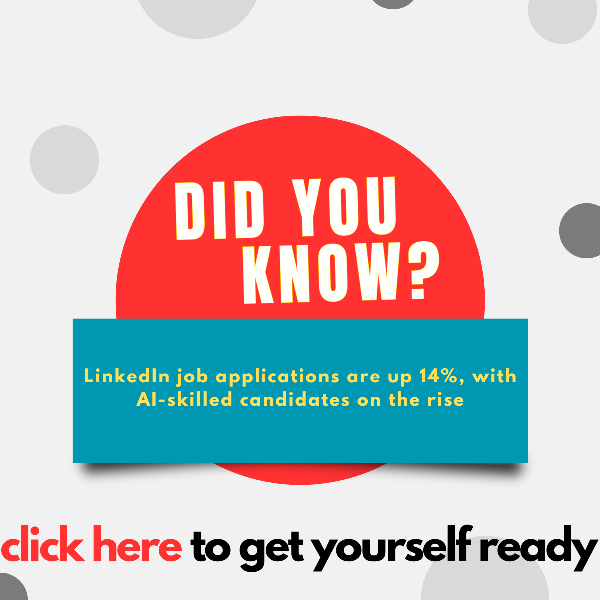
AI Career Opportunities and Industry Demand
Artificial Intelligence (AI) is opening up new career paths in many fields. Companies are looking for skilled AI professionals more than ever. Roles like AI Engineers, Data Scientists, and AI Researchers are in high demand, offering good pay and chances for growth.
Those who can mix AI skills with knowledge of specific areas are especially wanted. Healthcare, finance, retail, and manufacturing need people who can create and manage AI solutions for their needs.
AI jobs pay well, too. For example, NLP Engineers earn about $197,700 a year, and Machine Learning Engineers make around $165,700. AI Product Managers and Computer Vision Engineers also earn high salaries, showing the value of AI skills.
The future for AI careers looks very promising. By getting certified in AI or taking courses, you can grab great job opportunities and earn well.
“The demand for AI expertise is expected to reach unprecedented levels in industries such as finance, healthcare, and retail by 2025, driven by advancements in machine learning, automation, and data analysis.”
If you’re starting out or want to improve your AI skills, now is the time. Join the AI skills revolution and open doors to exciting careers and high earnings.
The following outlines major job sectors, identifying key AI skills required and available online courses for each.
Conclusion
The AI revolution is changing how we work and live. Learning AI skills is key for your career success in 2025 and beyond. It’s important to focus on core AI skills like machine learning and data analysis.
Staying updated with new trends will make you a leader in the AI future. Continuous learning is crucial for success in the fast-changing AI world.
By 2030, up to 375 million workers might need new skills due to AI. Yet, AI is expected to create 97 million new jobs by 2025. This means more jobs for those skilled in AI.
Developing your skills in AI can open many career doors. It ensures your job security for the long term. You can become a pro in AI for business, advanced machine learning, and more. There are many free AI courses online to help you grow. Whether you’re starting or improving your skills, there’s a lot to learn. Embracing AI skills can secure your future in a tech-driven world.
FAQ
Source Links
- Preparing to Boost Your AI Skills in 2025
- The state of AI in early 2024: Gen AI adoption spikes and starts to generate value
- The Future of Learning & Development: Adapting to an AI-Powered Evolution
- AI Upskilling Strategy
- AI Skills for 2025: The Top 5 Skills Employers Are Seeking
- Why AI Skills Will Be Non-Negotiable in 2025
- AI: The Hottest Skill of 2024 – Here’s Why You Should Care – AICERTs – Empower with AI Certifications
- What Top Tech Skills Should You Learn for 2025?
- Top 6 Skills to Earn Best AI Jobs in 2025
- Artificial Intelligence and Machine Learning Job Trends in 2025
- Roadmap to Learn AI in 2025 Your Path to Success
- Top 10 AI Skills to Learn to Get an AI Job in 2025
- Natural Language Processing (NLP) Guide & Examples
- Top 5 High-Income AI Skills to Learn in 2025
- Major Technologies Worth Learning in 2025 for Data Professionals
- Top 10 Cloud Computing Skills to Learn for 2025
- The AI Developer Blueprint: Skills, Tools, and Salaries for 2025
- 10 Reasons Why Learning Cloud Computing Is Essential For Your Career In 2025 – Boston Institute Of Analytics
- Generative AI in Education: The Impact, Ethical Considerations, and Use Cases
- Ethical Considerations in AI Model Development
- Ethical Considerations for AI in Higher Education
- Learn AI: Guide to Understanding Artificial Intelligence
- AI skills to boost your tech career – Intuit Blog
- A New Framework for AI Upskilling Across Your Organization
- AI-Powered EdTech: Transforming Learning Experiences in 2025
- Supercharging America’s AI Workforce
- 4 Simple Tips for AI Beginners to Get Comfortable with AI
- Guide to Discovering AI Careers (Decision Tree Map)
- Exploring Artificial Intelligence Career Paths: Opportunities in 2025
- 10 top AI jobs in 2025
- Why the Demand for AI Will Skyrocket in 2025
- AI Education in 2025: The Skills You Need to Stay Ahead
- AI and the Workforce: Preparing for the Jobs of the Future

